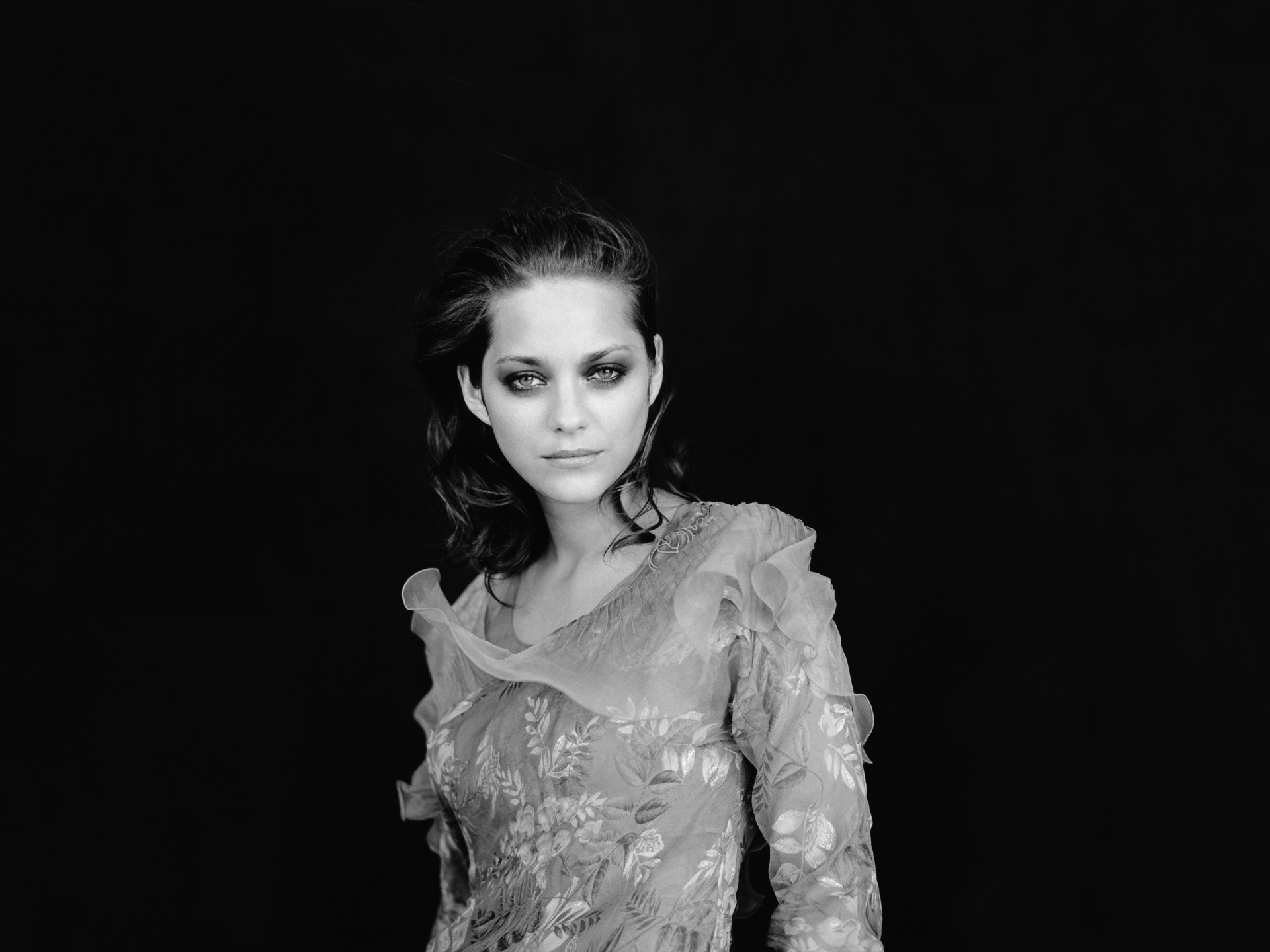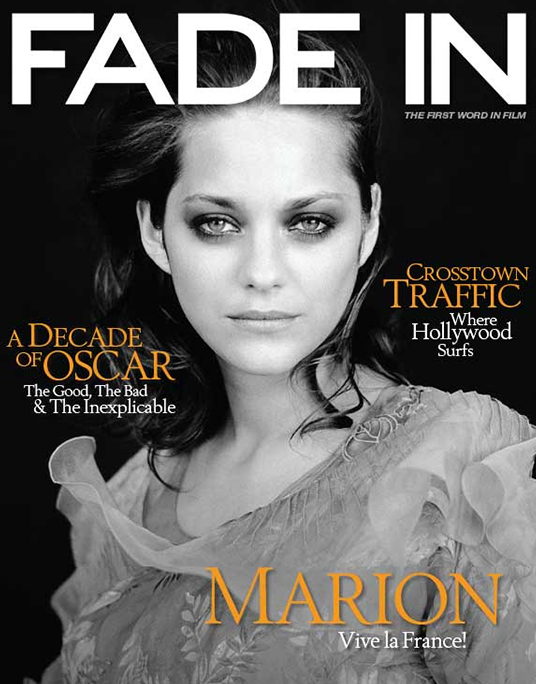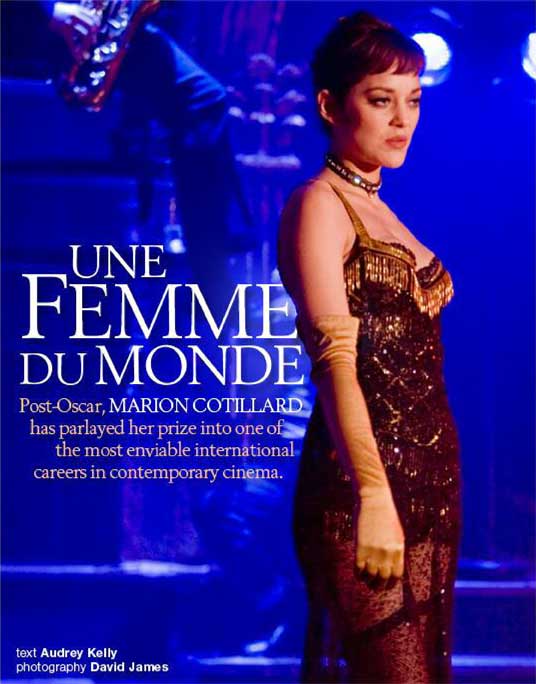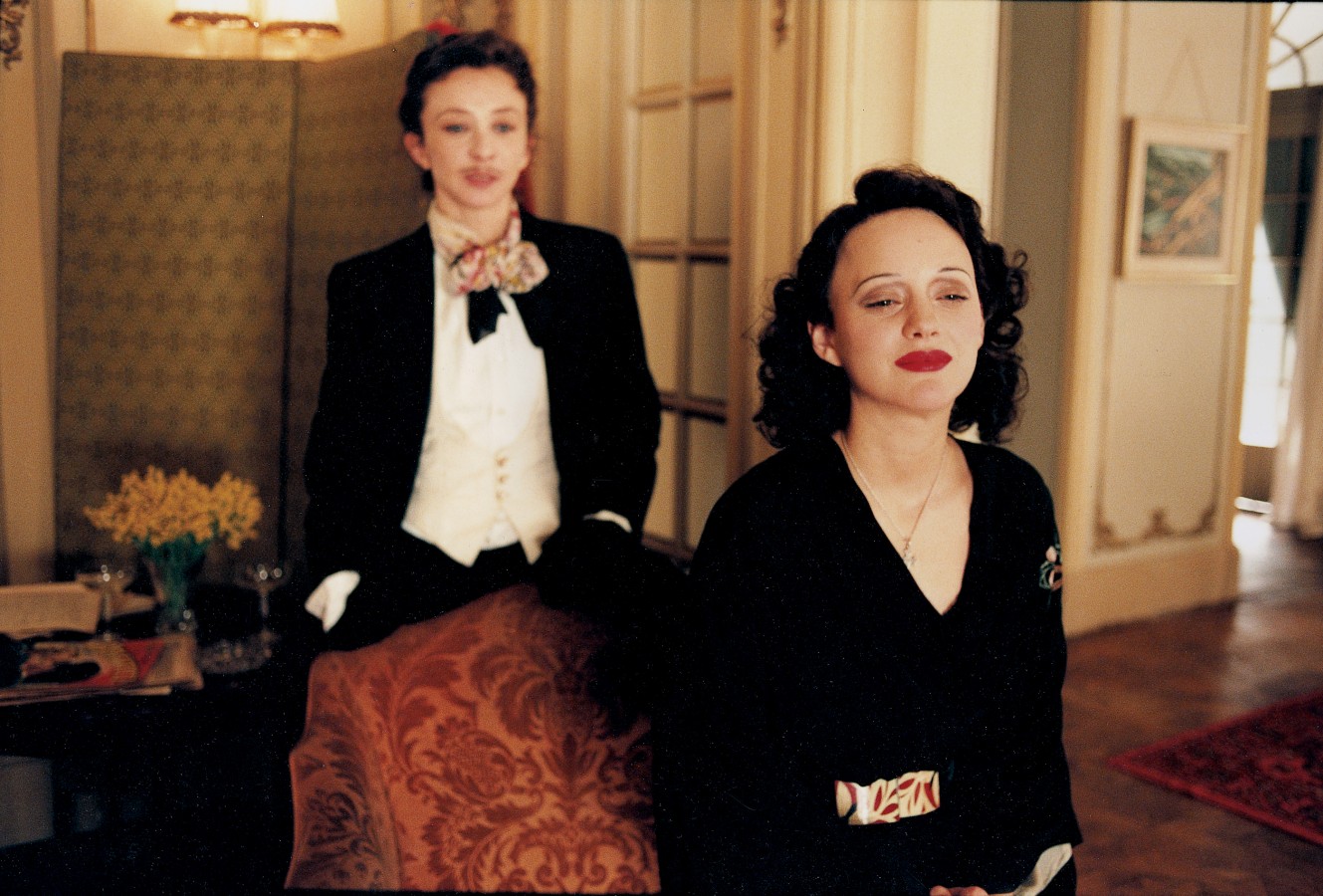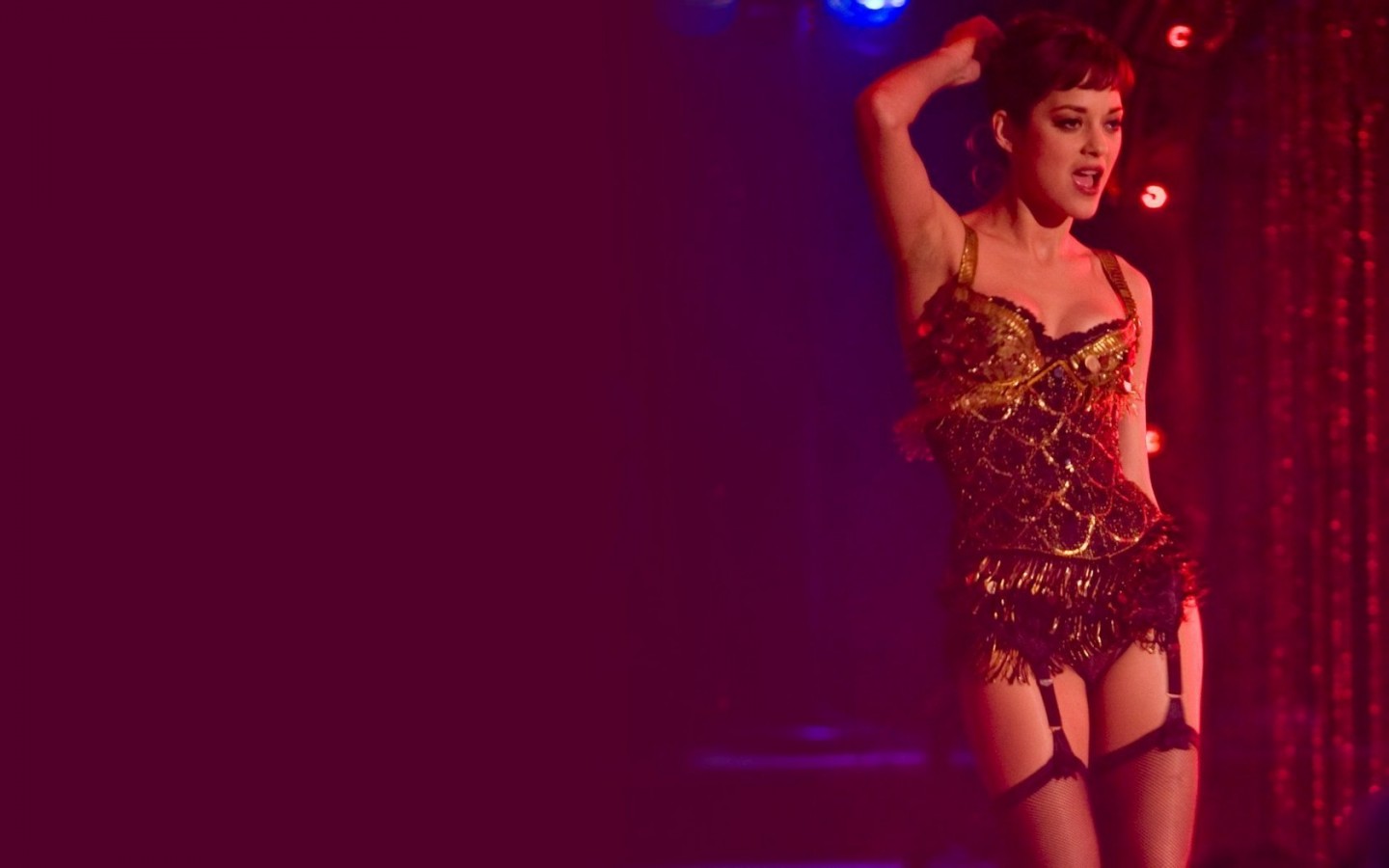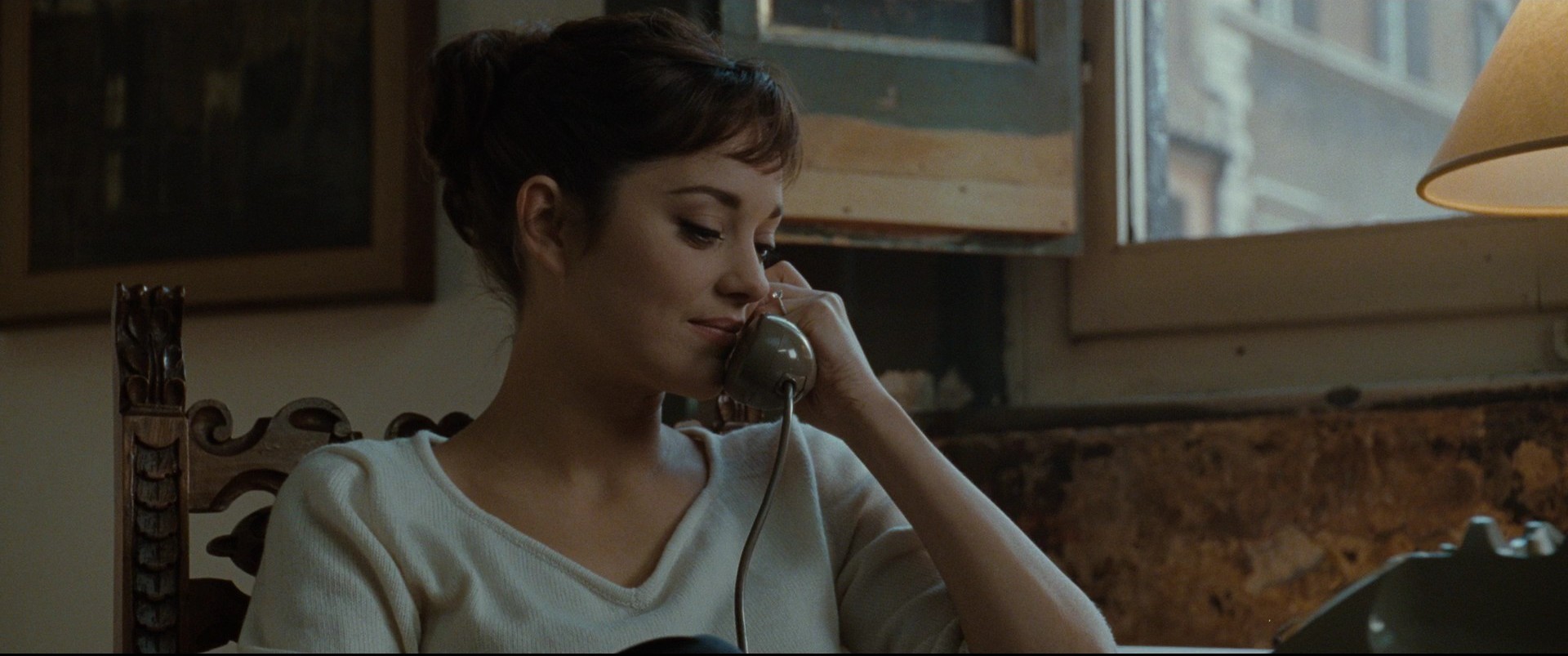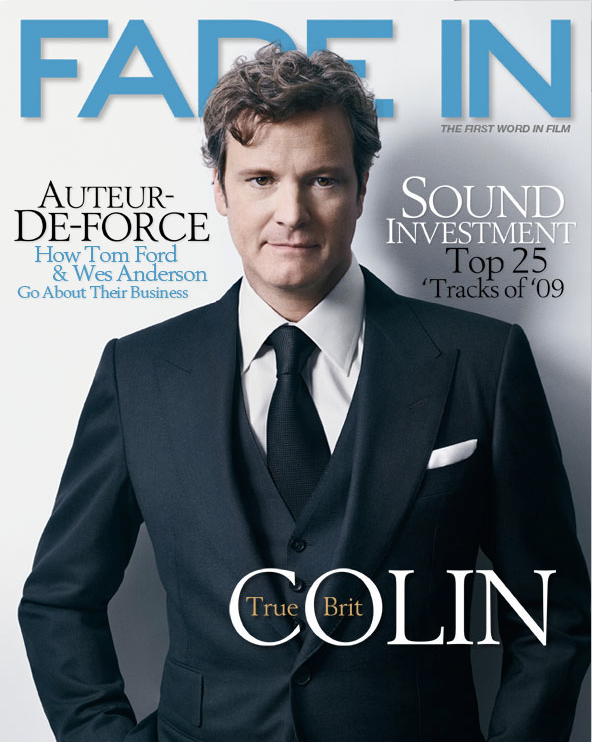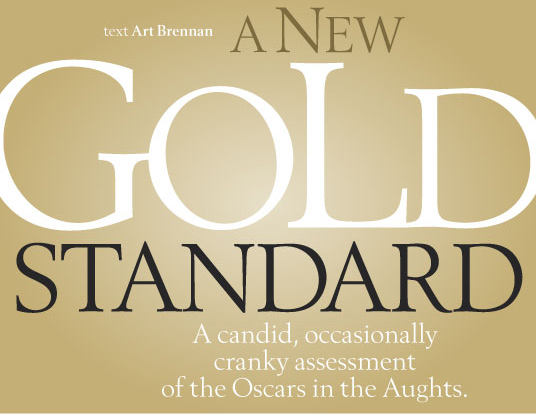 wo years ago, when Marion Cotillard, dressed in a curve-hugging Gaultier gown that made her look like the most alluring mermaid since Daryl Hannah, accepted the Best Actress Oscar for her shattering performance as singer Edith Piaf in La Vie En Rose, most American moviegoers were seeing her for the first time. But the Paris-born performer was far from a newcomer. On the contrary, she had been quietly establishing herself for several years, both in her homeland and in Hollywood.
wo years ago, when Marion Cotillard, dressed in a curve-hugging Gaultier gown that made her look like the most alluring mermaid since Daryl Hannah, accepted the Best Actress Oscar for her shattering performance as singer Edith Piaf in La Vie En Rose, most American moviegoers were seeing her for the first time. But the Paris-born performer was far from a newcomer. On the contrary, she had been quietly establishing herself for several years, both in her homeland and in Hollywood.Most notably, in addition to roles in several acclaimed French productions — including Love Me If You Dare and A Very Long Engagement (for which she won a César – France’s equivalent of an Oscar – for Best Supporting Actress) — Cotillard appeared as Billy Crudup’s wife in Tim Burton’s Big Fish, and co-starred opposite Russell Crowe in A Good Year, directed by Ridley Scott.
Without a doubt, the Gallic beauty had put together a very respectable resume. But the scope and sublimity of her performance as Piaf — not to mention the Oscar — made Cotillard an international star, and one of the few French actresses, along with Juliette Binoche, Julie Delpy and Audrey Tautou, to successfully cross over into major American films.
Case in point: Cotillard followed La Vie En Rose with a key role in last summer’s gangster drama Public Enemies, starring Johnny Depp and Christian Bale, and directed by Michael Mann; and she is once again in Oscar contention this year for her work in Chicago director Rob Marshall’s latest musical, Nine, with a cast that includes Daniel Day-Lewis, Nicole Kidman, Penélope Cruz, Kate Hudson and Sophia Loren.
But for all of her recent success in the United States, Cotillard is quintessentially French, and she and her romantic partner, actor-director Guillaume Canet, have chosen to remain in Paris rather than uproot to L.A. After having worked together as actors in the beguiling Love Me If You Dare, the duo have re-teamed for another film — this time with Canet directing — Les Petits Mouchoirs, to be called Little White Lies in the States.
If any further evidence were needed that Cotillard has not gone Hollywood, consider this: she is about to embark on her own directorial debut — a documentary about deforestation.
Having just wrapped the science-fiction thriller Inception, starring Leonardo DiCaprio and directed by Christopher Nolan, we caught up with the thirty-four-year-old star during the tail end of the promotional campaign for Nine…
You must be exhausted. Is this the most time you’ve spent promoting a movie? Well, [I’m] used to it, and I’m very, very happy with the film, so it makes it easy.
A lot has happened since we last spoke. You won the Oscar for La Vie En Rose, which must have been surreal. How has your life changed since winning? To win for a country that represents my favorite movies of all time — I’m so, so lucky. I work a lot. I get to meet interesting people. I get to travel.
Has the amount of offers increased? Yes, yes. [Laughs] I have to say those did increase.
What about the amount of roles for you to play famous singers? No! Actually, no. No, I had offers to play old people.
Interesting. Yeah. [Laughs]
“It’s something that has changed compared to the studio era; more and more actors want to produce movies. For example, Charlize Theron didn’t wait for someone to give her Monster… It’s very interesting that actors take the risk to produce movies because they’re frustrated that directors will not think of them in that kind of role, so you produce it yourself.”
“I’ve been involved in different environmental projects, and the first project I was involved in with Greenpeace was about the forests, just because it was such nonsense to cut our lungs… There’s an amazing project, Pure Project, in Peru, where this guy buys some land that is dead and plants trees. Projects about reforestation are so inspiring, and so that’s why I want to do a documentary about the forests.”
With more offers to choose from, it must make the selection process even harder. What does a project have to have in order for you to say yes? There are some stories that I really enjoy, but then, three days later, do I still love the story? It has to be an obsession. I have to be obsessed. [There needs to be] something all around the place telling me to do this. My blood has to boil.
Has that selection process changed over the years? Oh, no. It can’t change. There has to be a reason for me to do a movie.
Inception, which you just finished, is a big-budget studio film. What sort of pressures do you feel when making a studio film as opposed to making a smaller budgeted film? I don’t think about that.
Really? When I do a movie, I just want to understand the character and to do my best to portray a character with a mixture of my vision with the director’s vision. But I don’t want to think about how big the budget is, or that it’s a studio movie.
But what about the amount of time that one requires over the other? A big-budget studio film might require an additional two months of marketing. Does that ever affect your decision-making process when choosing which project to do next? No, [but] it should sometimes. My parents would love me to be affected by how long I will be away from home! But it’s the story, and if I love the story and I love the character, nothing else matters. DiCaprio is one of the most amazing actors on Earth, and I was so lucky and happy to have worked with him. I really don’t think how big the movie is or the budget.
Or the time commitment? Yeah, that’s a problem.
How did Nine come to you? I had this call from, I believe, my French agent at that time, telling me that Rob Marshall wanted to meet me and he wanted me to audition for his next musical. It had always been my dream to do a musical, and especially an American musical. So I couldn’t believe it. So I went to audition for him. The first audition was a singing audition. I actually auditioned for [the role of] Lilli La Fleur, and I sang the song “Claudia.” It was my first audition. So it was not for [the role of] Luisa, the first time. The second audition was for Lilli again. That’s when they asked me if I’d come back again for another audition to play Luisa. The third audition I sang “My Husband Makes Movies,” and that’s when they told me right away I would be Luisa.
That’s crazy. That was totally crazy.
Had you seen the original musical? No, I didn’t even know there was a musical before I auditioned for [director] Rob [Marshall]. I knew [Fellini’s film] 8 1/2, of course. But the first time I listened to the song, and the first time I heard about it, was when I auditioned.
What suggestions, if any, did Rob give you to prepare for the role? We had this rehearsal time for two months, and he shared a lot of things with us…dancing numbers of amazing people like Joey Heatherton. And he knew that we would all dive into the ’60s and into the Italian movies of the ’60s. We all watched a lot of movies. Especially Penelope and Daniel watched a lot of Italian movies.
How long did it take you to shoot the Take It All sequence? I believe it was only a day. Maybe two days. No, it was a day. Maybe it was two days. I don’t know. It was too short!
When you work with a great ensemble cast like you did in Nine, do you end up picking up any tricks of the trade? For instance, working opposite Daniel Day-Lewis — was there any advice he gave you that you will adhere to from here on? You always learn something working with amazing actors. It’s hard to talk about someone else’s technique or secrets. [It’s] like how you cook an amazing dish; you won’t talk about how you did it. You just hope people enjoy it. So, of course, I saw Daniel work, but I wouldn’t say anything about that. It would be like me betraying him, you know?
But the cast is so talented and unique, one would assume that one could learn or receive advice from someone like Sophia Loren. Yeah, I was about to talk about her. She’s so grounded, so simple. Sometimes I try to answer all the questions. I try to make people happy, and sometimes you can lose yourself a little bit. And I saw her just say no to something she didn’t want to do, and she had this way of doing it with such class. I would love to get some of it.
You’ve already worked with some highly regarded directors. They all have different techniques and are unique in their own way. We’re going to throw out the names of a few you’ve worked with recently. Tell us what you remember most about working with them. Let’s start with Michael Mann. Genius. He’s so demanding, and he gives you so many things to work on, and I love that. He made me meet so many people, do so many things to prepare for the role of Frechette, because he’s such a perfectionist. He’s exactly the kind of person I like to work with because he feeds you with everything you need.
Do you understand, though, why some actors end up getting into an argument with him? Oh, he’s tough. I don’t know. I love him. I love him so much. He’s tough, but he just wants people to be 100% committed to their work, and I want to be 100% committed to my job, so we really fit perfectly together.
Ridley Scott. We had such a wonderful time doing this movie. I love the way we would improvise. It was the first time that we could change a scene or the dialogue of the scene on the day we were shooting. This way to work was so alive. It was a new genre for him, the romantic comedy; he was not used to this kind of movie, and I hadn’t done a lot of American movies before working with him, so we were in a state of discovery and experiencing things. I love working with him.
Tim Burton. It was my dream! It was my dream! He was my idol. His vision, his universe, his own world, is something I recognize myself in. I don’t know, but it’s the feeling I had the first time I saw one of his movies. I wanted to be part of his world. It’s a bizarre world, but I’ve always loved beautiful monsters. I always loved something that could be ugly but could be so touching at the same time. I love the way he shows the beautiful side of something that is apparently ugly. I love this.
Chris Nolan. [Inception] was the last movie I did. On this movie, I did things that I had never done before. Chris has such an intense, interesting, mysterious inner world. Yeah, that’s it. He’s intense and mysterious.
You’ve worked with so many great directors. Here’s another one. I saw his film Tell No One last year, and it’s one of the best films I’ve seen in the last five years: Guillaume Canet. Ah! Whoa-hoo! He would love to hear that.
How is he different from the other directors you’ve worked with? Well, he’s an actor. And I have to say, he’s the best director of actors that I’ve ever worked with. Like Michael Mann, I would say. He’s a perfectionist, too. Actually, it’s funny, they met, Michael and Guillaume, when I was shooting Public Enemies, and there were some things that I could recognize, some Michael Mann things in Guillaume. He admires him so much, and he’s really such a perfectionist and an amazing director to work with. Sometimes I thought, ‘This scene will be hard to get,’ and he would make things so easy for you to be the character and be there. Same as Michael Mann, he feeds you with everything you need.
The film you recently did with Guillaume will be called Significant Others here in the States. No, no, no, that will be called Little White Lies. [Significant Otherse] was the title the production gave it, but Guillaume was not happy with it, so he changed it.
Was that the first time you’ve worked together on a film since you played the leads in Love Me If You Dare? It was the first time I worked with him as a director.
Did you have any reservations about being directed by someone you have such a close relationship with, and if so, what were they? Well…uhm…it was heaven and hell. [Laughs] No, I’m just kidding. It was amazing, because he is an amazing director.
I read that the French media treats you two like the American press treats Brad and Angelina. They’re obsessed. Is that true? Well, not really. We have laws in France, so you can’t be followed every day of your life by paparazzi.
How nice. Yeah, we’re lucky.
What do you owe the public as movie stars? I wouldn’t be an actress without the public, so I owe them so many things. The fact that I realized my dreams, I owe them the joy I have to share things with people.
One of my favorite things in life is sharing emotions with people, and without them I wouldn’t have the opportunity to do that.
You’re in high demand as an actress. Why start your own production company? Well, you know, a lot of actors [do], and it’s something that has changed compared to the studio era; more and more actors want to produce movies. For example, Charlize Theron didn’t wait for someone to give her Monster, do you know what I mean? It’s very interesting that actors take the risk to produce movies because they’re frustrated that directors will not think of them in that kind of role, so you produce it yourself.
On the project Second Coming, you’re an executive producer. Will this be one of the first projects with your new production company? Yeah. We’re working on bringing the whole thing together.
And you’re planning on directing a documentary about deforestation. How did that come about? I’ve been involved in different environmental projects, and the first project I was involved in with Greenpeace was about the forests, just because it was such nonsense to cut our lungs. I had the opportunity to meet amazing people who have different projects of reforestation, and there’s an amazing project which is called Pure Project, in Peru, where this guy buys some land that is dead, they think, and they plant trees. All of those projects about reforestation are so inspiring, and so that’s why I want to do a documentary about the forests, because it would be about deforestation and all of the projects about reforestation. I will be doing this next.
Wait. Didn’t Daniel Day-Lewis give you advice to take some time off? [Laughs] How do you know that?!
That’s my job. Yeah, that’s true.
And so? But, you know, it’s not so much about taking time off to do nothing; it’s about taking time off to be yourself. That’s what he meant. And doing a documentary about the forests is living my life, and not the life of Luisa or Edith Piaf. It’s really being myself.
